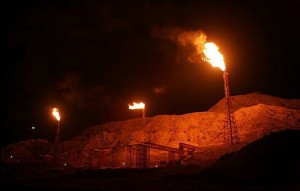Are We Running Out Of Oil?

According to a whistle-blower, which is a senior official at the International Energy Agency, the global oil reserves are overestimated. The International Energy Agency (IEA) is based in Paris, and is supposed to be an independent energy watchdog. According to the IEA’s whistle-blower, the world is much closer to running out of oil than official estimates admit, but the IEA is underplaying a looming shortage in order to not provoke a panic.
According to UK daily The Guardian, which broke the story, the United States has played an influential role in encouraging the IEA to underplay the rate of decline from existing oil fields. The Guardian also said that the US has encouraged the Paris-based organization, formed to try to safeguard energy supplies, to overplay the chances of finding new oil reserves.
The serious allegations of the Guardian, based on the unnamed senior IEA official, come ahead of this week’s publication of the IEA’s World Energy Outlook 2009 on oil demand and supply, which many governments worldwide use as a guideline for their climate change and energy policies.
The last World Energy Outlook report from the IEA, in 2008, estimated that oil production could be raised from its current level of 83 million barrels a day to 105 million barrels a day, to keep up with demand.
“Many inside the IEA believe that maintaining oil supplies at even 90 million to 95 million barrels a day would be impossible, but there are fears that panic could spread on the financial markets if the figures were brought down further. And the Americans fear the end of oil supremacy because it would threaten their power over access to oil resources,” the unnamed IEA official told the Guardian.
“A key rule at the organization was that it was imperative not to anger the Americans. We have already entered the peak oil-zone, I think that the situation is really bad,” another unnamed former IEA official told the British newspaper.
Today, the executive summary of the IAE World Energy Outlook 2009 was made available by the organization. The 12 pages summary is far from painting a rosy picture, and contains some very alarming data.
“Current policies put us on an alarming fossil energy path. Continuing on today’s energy path, without any change in governments policy, would mean rapidly increasing dependence on fossil fuels, with alarming consequences for climate change and energy security,” warns the IAE summary.
The World Energy Outlook presents the result of two different scenarios: A reference scenario, which provides a baseline picture of how global energy markets would evolve if governments make no changes to their existing policies; and a 450 scenario, which depicts a world in which collective policy action is taken to limit long-term concentration of greenhouse gases emission in the atmosphere to 450 parts per million(450 PPM) of CO2. This objective, recommended by the IEA, falls short of what organizations such as Greenpeace & 350.org are recommending to address climate change. 350.org is recommending to cap CO2 emissions at 350 PPM.
To read the complete IAE summary for the World Energy Outlook 2009 click here.
Related Articles













You must be logged in to post a comment Login